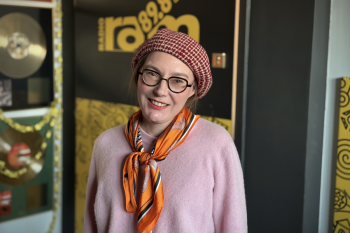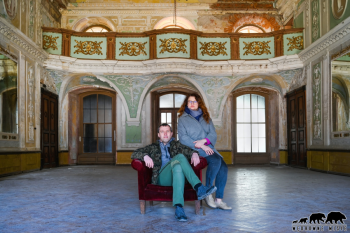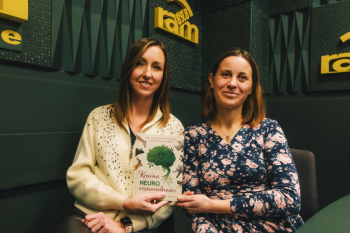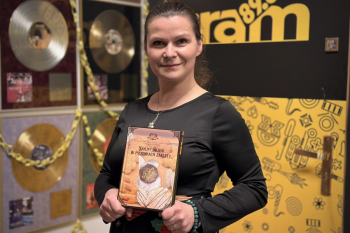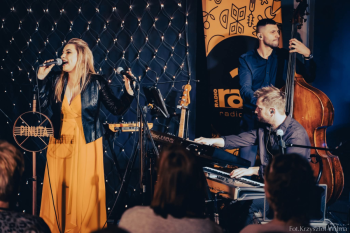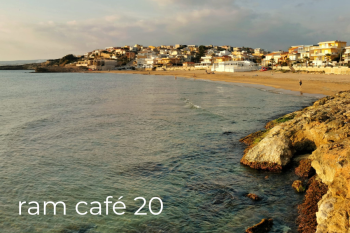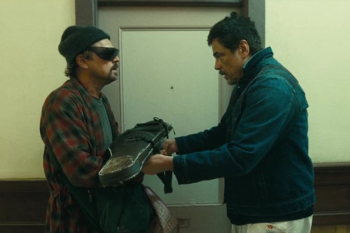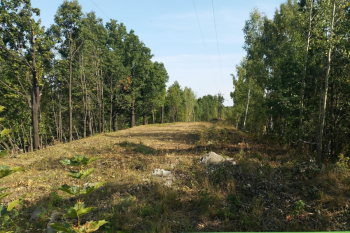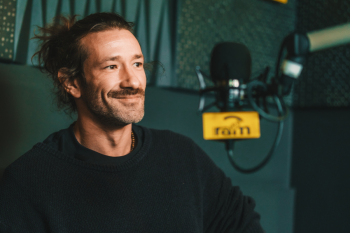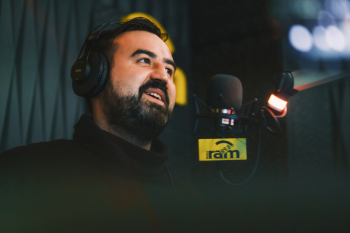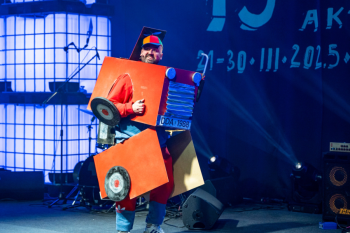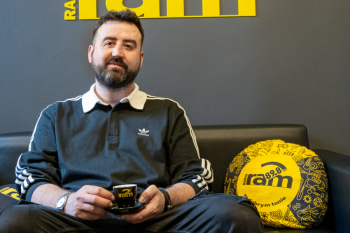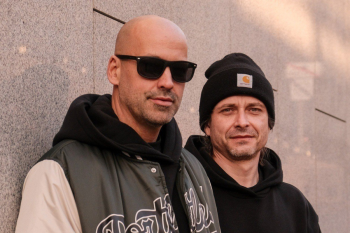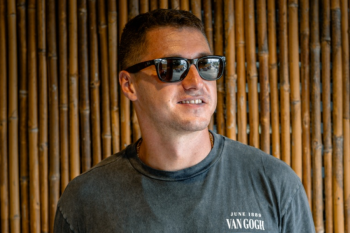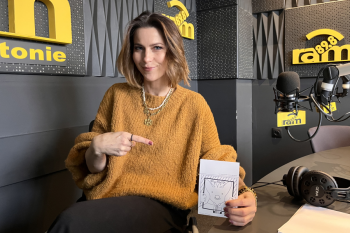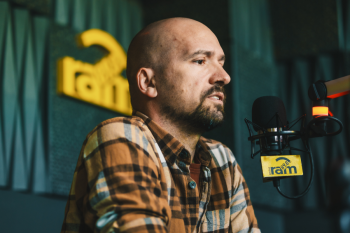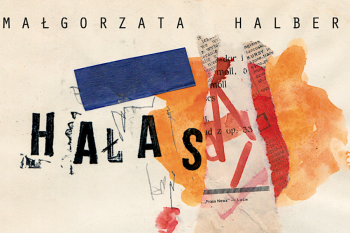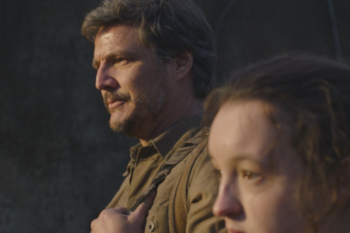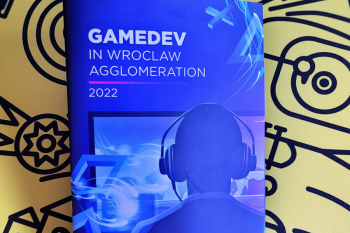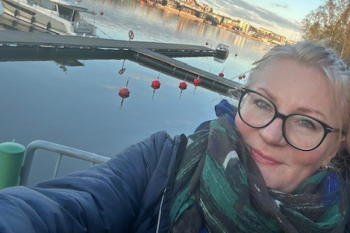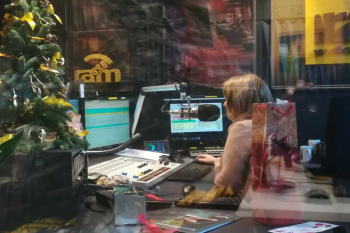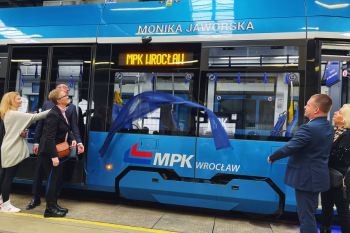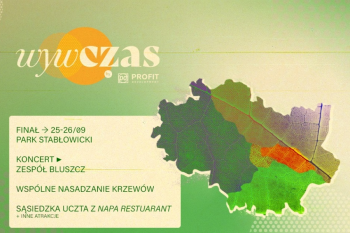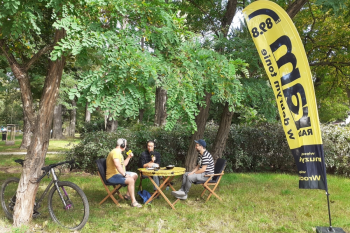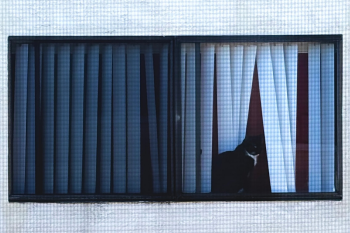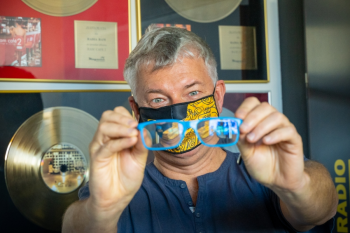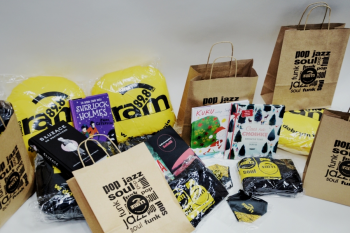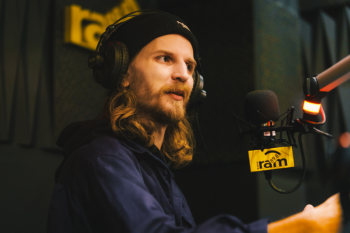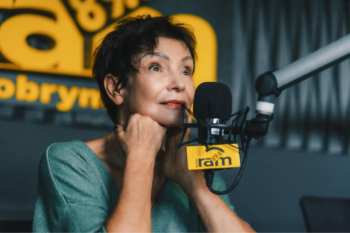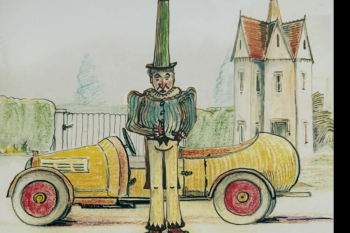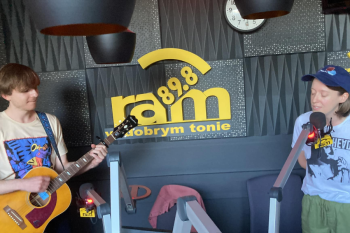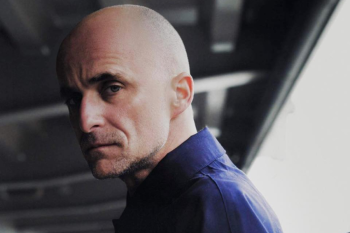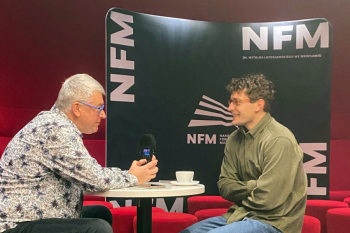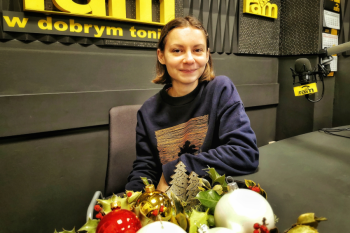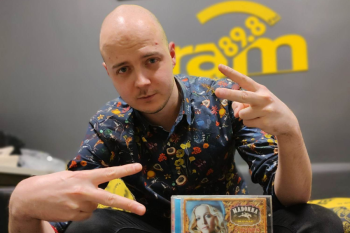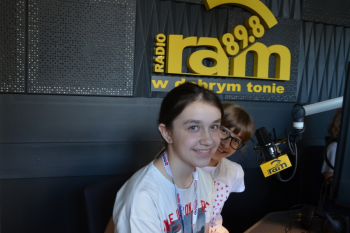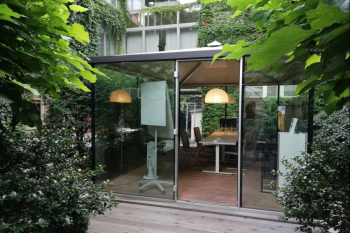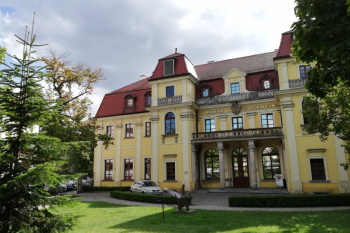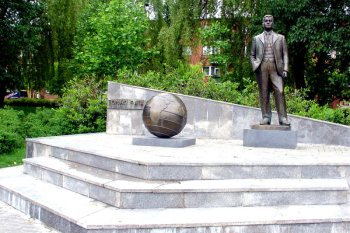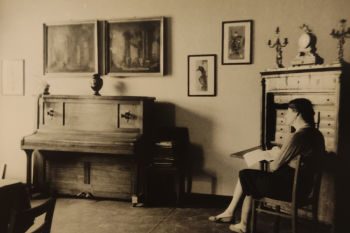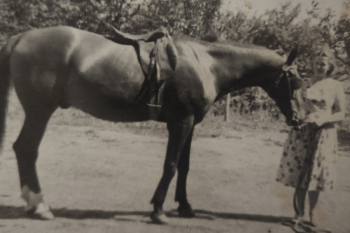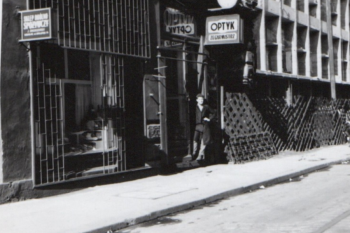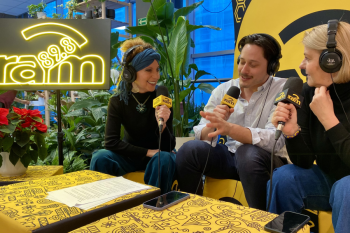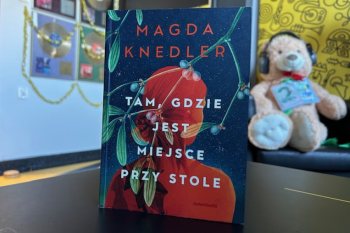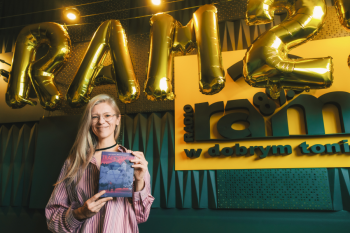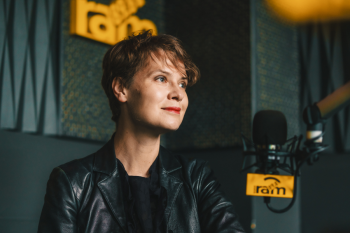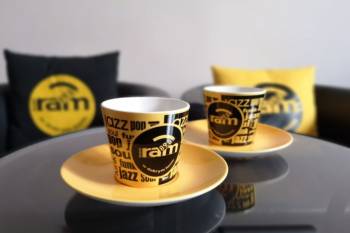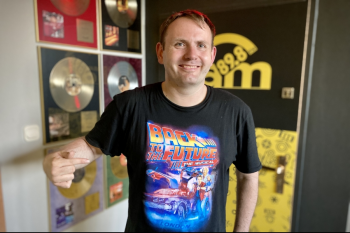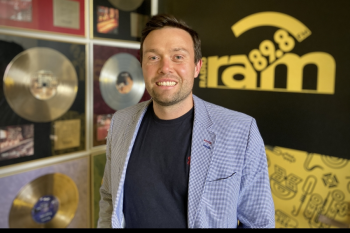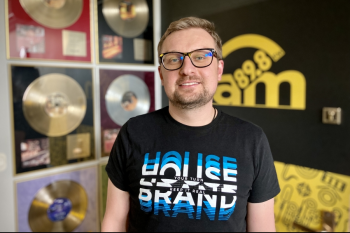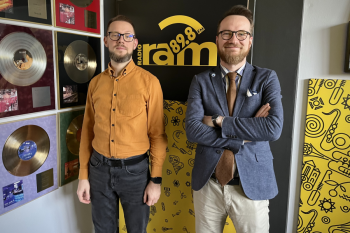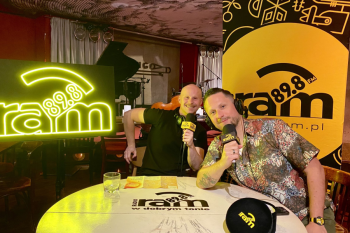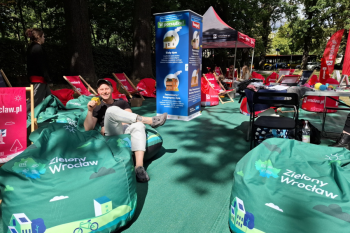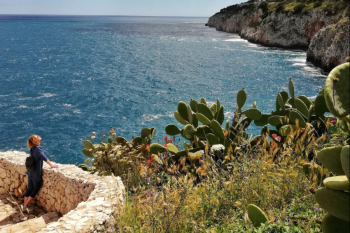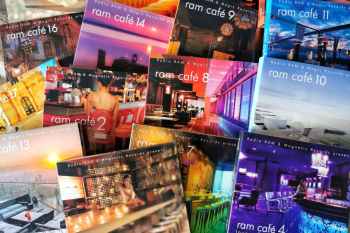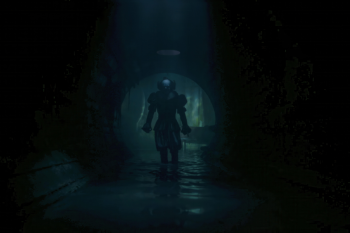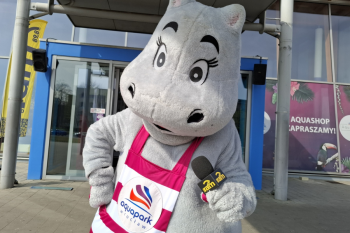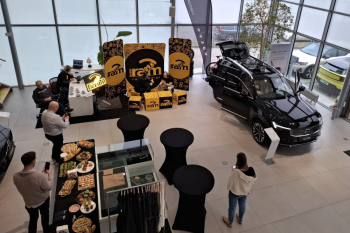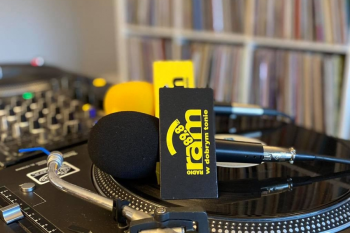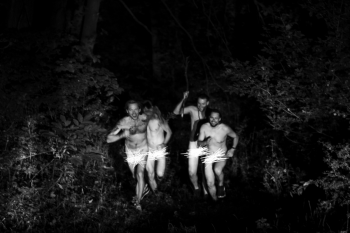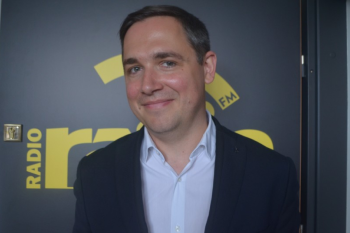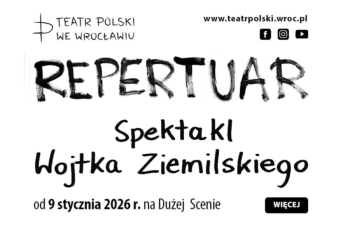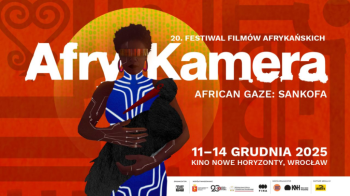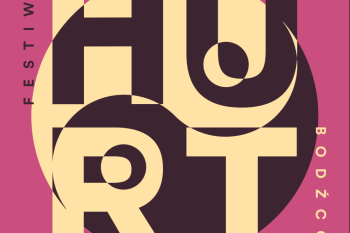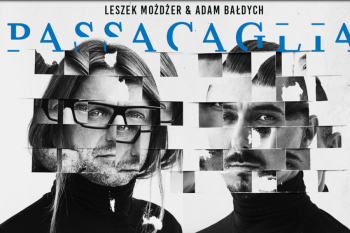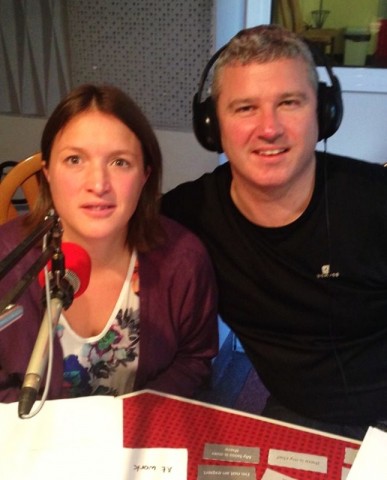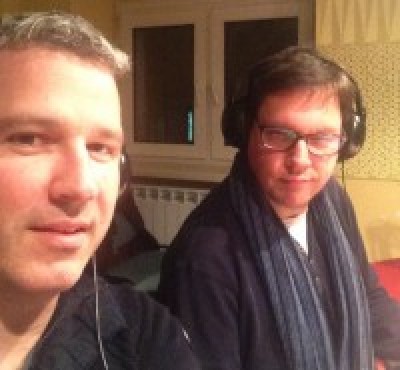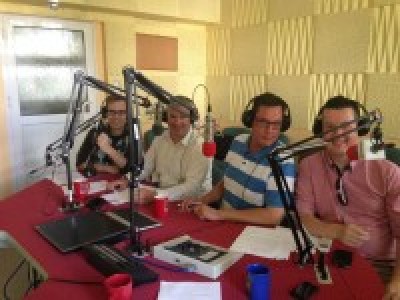Słuchacze wybrali temat kolejnego sezonu Strefy Angielskiego
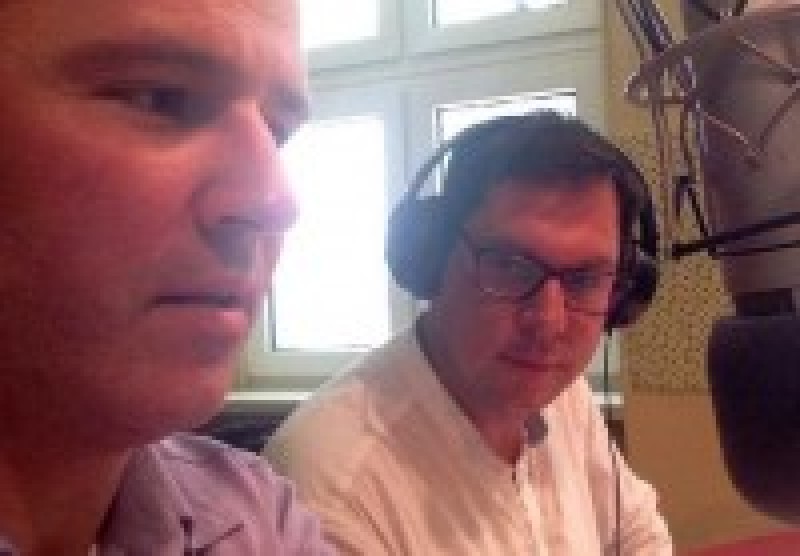
Terry Clark-Ward i Nick Thomas to Anglicy, nauczyciele języka angielskiego pracujący we Wrocławiu. Od roku przygotowują dla słuchaczy Radia RAM cykle lekcji języka angielskiego. 6 września zakończyliśmy głosowanie, w którym słuchacze, spośród trzech propozycji. wybierali temat kolejnej Strefy Angielskiego.
Do wyboru zaproponowaliśmy następujące pomysły:
1. SONG LYRICS EXPLAINED, czyli rozszyfrowanie tekstów angielskich piosenek
2. ESK in English, czyli Europejska Stolica Kultury po angielsku
3. TYPICAL MISTAKES, czyli najczęściej popełniane przez Polaków błędy w języku angielskim
Zwyciężyła propozycja „TYPICAL MISTAKES”, czyli najczęściej popełniane przez Polaków błędy w języku angielskim. Terry i Nick już rozpoczynają pracę nad przegotowaniem cyklu, który wskazaliście w głosowaniu. Już wkrótce nowe lekcje angielskiego usłyszycie na antenie Radia RAM oraz na naszej stronie internetowej www.radioram.pl
Tutaj znajdziecie szczegóły propozycji, które poddaliśmy pod głosowanie:
SONG LYRICS EXPLAINED
T: This week we will be discussing a few possible options for the next Ram English Zone.
N: A taste of what could come... (English Zone about song lyrics)
T: Our first suggestion for the next Ram English Zone is to analyse famous song lyrics and explain what they mean.
N: So, songs which are familiar to the Polish listener.
T: Yes, and this may include songs that Polish listeners know the words to, but don't fully understand.
N: That sounds interesting. Are you going to give us a quick demo?
T: Sure. Listen to this by Toto...
As soon as my heart stops breakin'
Anticipating
As soon as forever is through
I'll be over you
N: Well, the first two lines are quite easy. „When my heart stops breaking – and anticipating”, so expecting and waiting for this to happen.
T: That's right, but the next two lines are more interesting: „As soon as forever is through” – well, this is ironic, because forever is endless (wiecznie). To say something is through means to say it is finished. So in fact, it is saying when endless time ends, which is impossible, but perhaps this is just said to highlight how painful the break up is.
N: OK - and the last line?
T: „I'll be over you” – OK, to „be over someone” means (być wyleczonym z miłości) – so, you are no longer, in fact, emotionally engaged with them. So in time, the singer will feel ready to start again and meet someone else.
N: So, really it is saying that it will be difficult to „get over” (wyleczyć się z miłości) his love for the woman in the song.
T: Yeah, he'll need to build a bridge to „get over” her.
N: English humour. Anyway, I remember a Billie Ocean song „When the going gets tough” – have a listen:
When the going gets tough
The tough get going
When the going gets rough
The tough get rough
Hey, hey, hey, hey, hey
Ooooh baby
T: I remember that song.
N: It means when the situation becomes difficult, the strong will work harder to meet the challenge.
T: This is a funny song. Back in the 1980's (w latach 80-tych) in England, everyone thought Mr Ocean was singing „When you go and get stuffed” – this is offensive because if you tell someone: Get stuffed! - it means something like „Spadaj!”
N: Anyway, so, if any of you radio RAM listeners have a song that you would like us to analyse and explain, please send us an email to: [email protected]
T: And If you generally like this idea for the next Ram English Zone, please vote on the Radio RAM website @ www.radioram.pl
N: English Zone special with Terence Clark-ward and Nick Thomas.
ESK IN ENGLISH
English zone – a taste of what could come... European Capital of Culture
T: Our second suggestion for the next Ram English zone is about the forthcoming European Capital of Culture in Wrocław 2016 (ESK). Wrocław is the meeting place. It's a proud moment for the city.
N: It is indeed, but do you think the people of Wrocław are ready to welcome foreigners and tell them all about our city... in English?
T: Wrocławians are certainly proud, but I think some people are worried because they are simply not sure how to name things correctly in English.
N: What do you mean?
T: Well, take 'Rynek'. I've heard it called Rynek, the square market, the town place, city square etc... In English it should be called 'The market square'.
N: The market square is where you will find the old townhall (Stary Ratusz), the Pillory (pręgierz), the statue of Fredro (pomnik Fredry) and the city fountain (fontanna miejska).
T: Another area hard to name is the very old part of Wrocław with all the churches and the city Cathedral.
N: It is called „Ostrów Tumski”, but in English, it should simply be called „Cathedral Island”.
T: And not too far away is what people call „Panorama Racławicka”. This is a large panoramic painting of a famous battle between Poles and Russians near a village called Racławice.
N: Yes, it's a beautiful panoramic painting.
T: In English it should be called The Raclawice Panorama. But because the letter „ł” doesn't exist in English, and because English people are not always the best linguists, you may hear it being pronounced as the Rac-law-ice panorama.
N: Yes, but with help, a foreigner can learn to say „Racławice”. See, I did it.
T: So, let's put it all together.
N: The market square is a major attraction in Wrocław. You will see the old town hall, the old pillory, a statue of the famous writer Alexander Fredro and the modern city fountain.
T: A short walk away is the remarkable „Cathedral Island”, - a place of many churches, religious buildings and the city cathedral.
N: A short walk away from this is the impressive Racławice Panorama - not to be missed.
T: So, now you can begin to talk about our city in English with culture!
T: And If you generally like this idea for the next RAM English Zone please vote on the Radio RAM website: www.radioram.pl
N: English Zone special with Terence Clark-ward and Nick Thomas.
TYPICAL MISTAKES
T: English zone special - a taste of what could come... Typical mistakes in English.
N: You've been working in language education for a long time, Terry, so you must have heard a lot of mistakes made in English by Polish speakers.
T: One or Two.
N: Oh, come on, be serious, you even wrote a book about it.
T: Well, you know, people do make mistakes sometimes.
N: So, give me an example of a situation.
T: Confusing „do” and „make” for example. People often say things like „I will make the homework” but really they mean „I will do the homework”.
N: Yes, doing and making do seem similar, but in fact „doing” is more about following a process e.g. you do the washing up, do your best, do your duty. „Make”, however, is more about creating, so you make a cake, make peace, make love, make war.
T: Of course you need to practise, but a good way to remember is to think about the slogan of a large sportwear company. In Europe and America, the slogan is „Just do it” meaning do the sport or go running etc...
N: OK.
T: And in Asia, the unofficial slogan is „Just make it” meaning make and produce the trainers and sportwear so that we in Europe can „Just do it”.
N: That's a good way to remember. What other mistakes are classic?
T: Things that come from direct translation e.g. „I have to go to home” or „Phone to my brother” or „The important is...”
N: And it should be, in context: I have to go home, phone my brother and tell him the most important thing is going to mum's birthday this week.
T: Very good, Nick. Context - that is the best way to remember the correct English. Always create a sentence and put it into context.
N: You have right, I mean „You are right”.
T: And if you generally like this idea for the next RAM English Zone, please vote on the Radio RAM website: www.radioram.pl
N: English Zone special with Terence Clark-ward and Nick Thomas.
THIS IS IT
TERRY: One very final hot minute of English.
NICK: It's almost the end of summer and this is the last episode in our summer series, which has spanned 2-months now.
TERRY: It's been a lot of fun and this was in fact our third English Zone with Radio RAM.
NICK: So, hopefully listeners may now be familiar with the English Zone, but I think they might be interested in knowing something about who we are.
TERRY: Very true. So, tell everyone a bit about yourself.
NICK: OK, I'm from a town called Ivor in the UK and I've worked in radio, broadcasting and film production for many years. In Poland, I'm a language consultant, teacher and voice over artist. And how about you?
TERRY: I'm from London and have lived in Wrocław for 15-years. I am the owner of an English School and have written 2 published books: Żegnajcie Błędy – Angielski dla Polaków & 'I can sing in English'.
NICK: And occasionally, we both write for the English language portal about Wroclaw: www.wroclawuncut.com
TERRY: Anyway, let's get back to the future – not the film, but the 3 possibilities for the next RAM English Zone.
NICK: OK, Option 1: Explain the song lyrics – from famous songs chosen by Radio RAM listeners.
TERRY: Option 2: English for talking about Wrocław- European Capital of Culture 2016.
NICK: And option 3: Typical mistakes Poles make in English
TERRY: If you would like one of these options to be the next English Zone on Radio RAM, please visit the radio ram website: www.radioram.pl in order to vote.
NICK: The most popular one will be the next RAM English Zone.
TERRY: And we hope it won't be too long before we're back on air with a brand new series.
NICK: We certainly do.
TERRY: This is Terence Clark-Ward signing off...
NICK: And this is Nick Thomas signing off...
TERRY: RAM English Zone.

